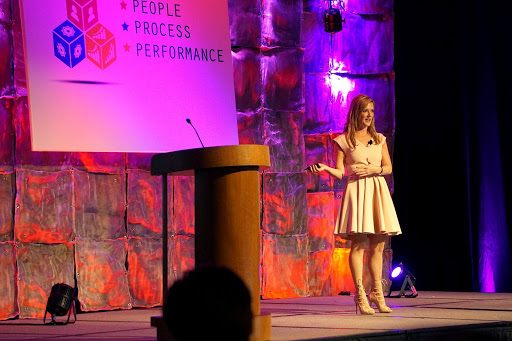Three years after Shelly Sun founded the Chicago-based BrightStar Care, she adopted a franchise model as a means for expansion, a somewhat unusual path for growing an in-home care company from scratch.
BrightStar is now active in 39 states, able to reach 75% of the U.S. population within a 30-minute drive. Overall, the franchise network has about 340 locations and thousands of employees.
In terms of business offerings, the company provides medical-level in-home care, non-medical home care services and hospice care. It also runs a medical-staffing segment.
Moving forward, BrightStar’s goal is to fill the remaining gaps across the country where it is not currently located. That means this year will be a big one for acquisitions, Sun said, speaking Tuesday at a MATTER discussion in Chicago.
“I think, to be the brand we want to be in the next five years, we’re going to need to get to the parts of the country that we’re not in now,” Sun, BrightStar’s CEO, said. “Acquisitions will be a large part of the year ahead — and two of them are in the works right now.”
The franchise company brought on a new CFO to help lead the company into its next phase of growth.
The CFO — David Pallaschke — previously served as a financial executive at Bolingbrook, Illinois-based ATI Physical Therapy and Warrenville, Illinois-based National Express before onboarding at BrightStar in November. Pallaschke brings a great deal of M&A experience, and little franchise experience, which signifies where BrightStar is headed.
BrightStar also recently entered the senior living space. It has three “BrightStar Senior Living” communities already up and running in Wisconsin and Indiana, and it is furthering those efforts in Michigan and Ohio as well.
“We want to meet the customer where they need us to be,” Sun said. “We had families whose family members were reaching a certain stage of high acuity or dementia, where the family determined it was holistically better to look at a community setting. It was really about trying to meet our consumers where their journey might take them.”
Solving the workforce problem
One of the challenges that BrightStar will continue to face as it expands is the recruiting and retention of caregivers, though the franchise giant has been ahead of the curve during its near-20 year run.
Another is ensuring that the plethora of entrepreneurs that have signed onto the BrightStar model as franchisees both feel fulfilled and maintain the company’s brand.
BrightStar tries to be inventive with its tactics to keep both those parties happy. For example, the medical-staffing segment enables it to keep its caregivers working when a patient transitions out of the home or passes away, allowing caregivers to work in a hospital or senior living community until their next home care assignment.
“Being able to take our best caregivers and plug them in on a staffing assignment until another home care case comes up is a really important part of differentiation for attracting and retaining staff,” Sun said. “Industry stats on turnover in the home care industry are over 100%. We run about 20%, which is still higher than I’d like, but there’s a lot of great work that we’re doing with retaining staff.”
Nationally, the median caregiver turnover rate skyrocketed to 82% in 2018, according to the latest data from market research and education firm Home Care Pulse.
As another way to help keep and attract workers, BrightStar has built out a talent-management team that focuses on turnover rate. And for franchisees that reach a certain revenue level, a dedicated recruiter is required.
There’s also “stay interviews” with caregivers to gain insight into the workers’ decision to continue their employment with BrightStar, which also pays its workers slightly above market rates.
On the franchisee end, the company tries to invigorate entrepreneurial spirit.
Annually, franchisees are offered an opportunity to gain autonomy in brand alteration through a pitch competition similar to the show “Shark Tank” at the BrightStar’s franchisee convention.
“They have to submit proposals,” Sun said. “We narrow it down to three, and then they get up on stage and are judged by their peers. The one that is judged to have the highest potential for the brand is the one that we get behind with dollars, resources and support from the franchise org.”
Sun used to have to put payroll on a credit card when the business first launched. Five years ago, BrightStar was a $100 million company.
Now, it is a $500 million company.
Additionally, despite continued home care interest from private equity buyers, Sun has retained 100% of the BrightStar business, she said, noting that her entrepreneurial journey started with a personal quest to find appropriate care for a loved one.
“That’s been a lot of the driving force,” Sun said. “Having that passion for doing it the right way. And even as we’ve expanded, [we] think about how we’re going to ensure the right kind of care thousands of miles away for grandmas, grandpas, moms and dads, which is the reason why the business started in the first place.”




